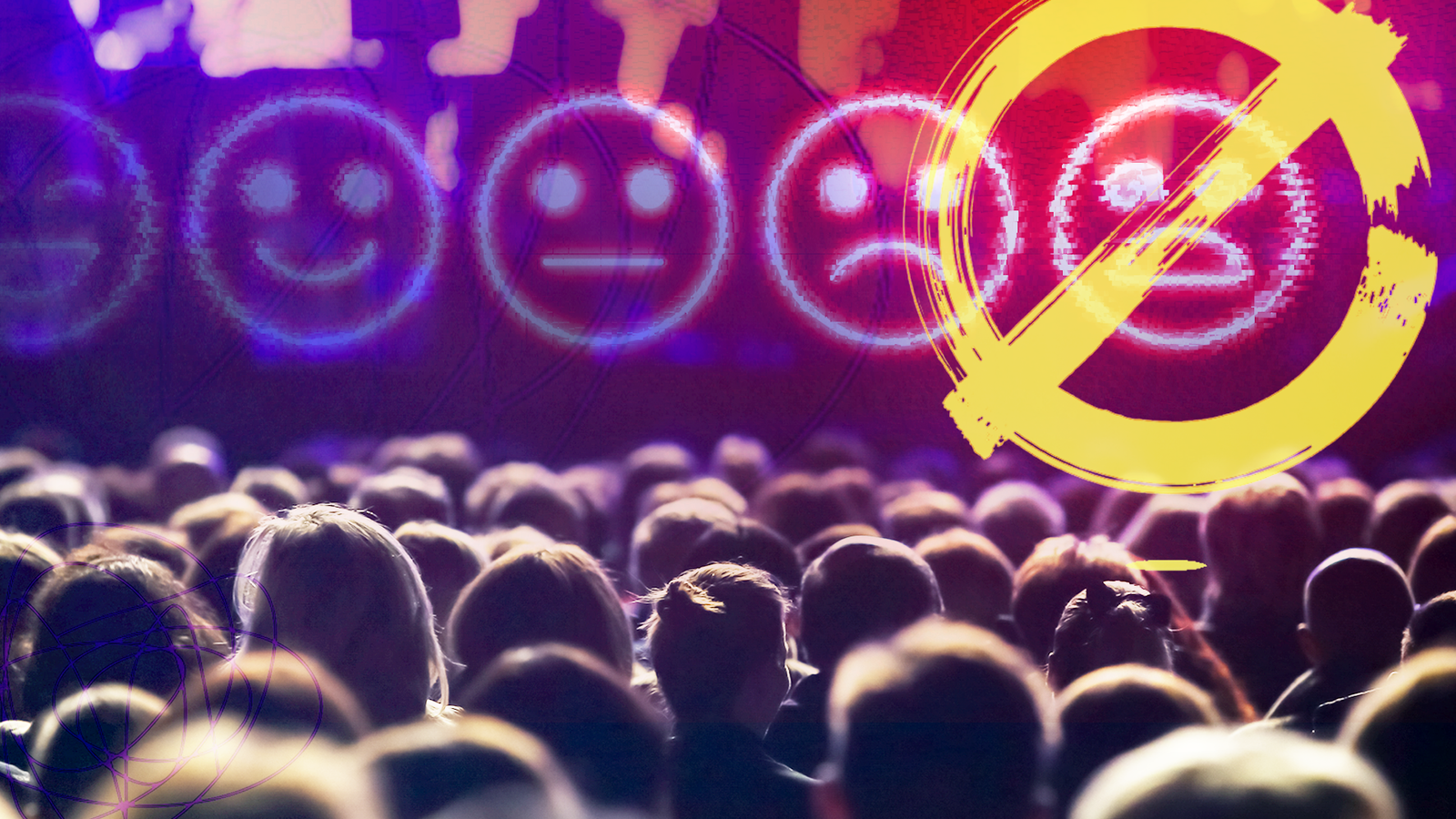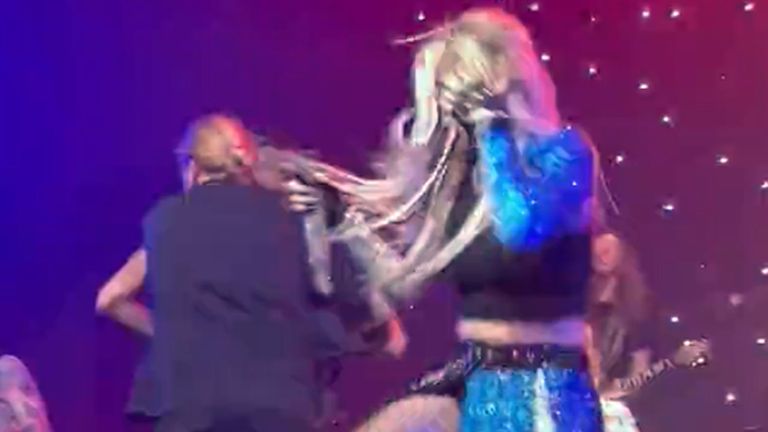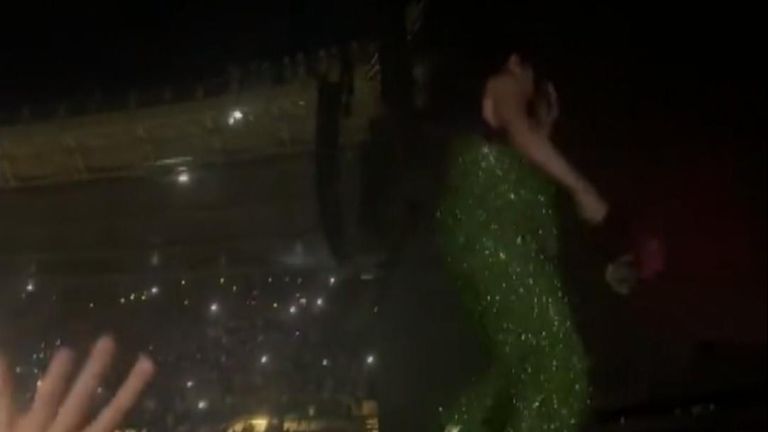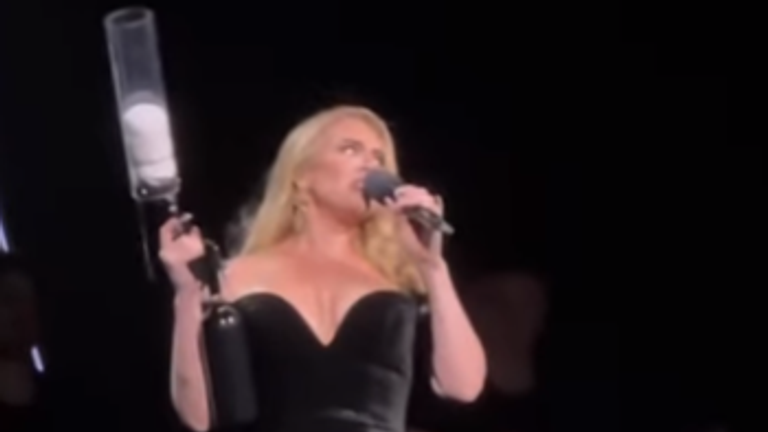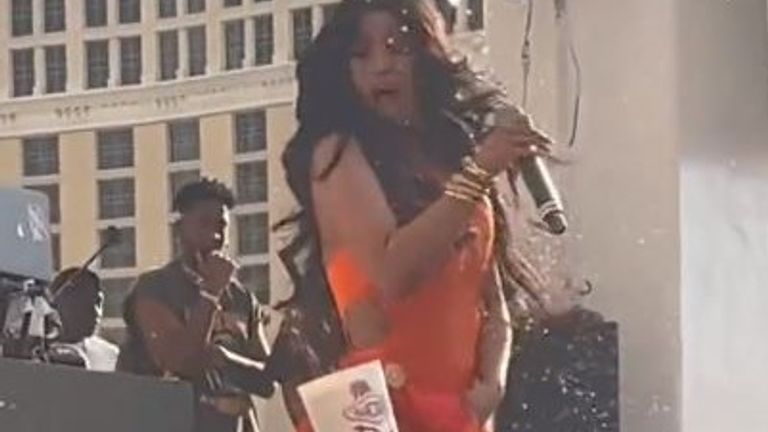Riot police called to a performance of The Bodyguard in Manchester; “Rude and abusive” audience members removed from the balcony of a West End performance of Grease by police and a performance of Meat Loaf’s Bat Out Of Hell at London’s Peacock Theatre brought to a standstill by a man hurling abuse at fellow theatregoers.
With all these incidents occurring this year alone, it’s no surprise that a recent survey of theatre staff showed many feared for their safety, reporting kicking, punching, choking, sexual assault and racial abuse while going about their work. There was even a mass brawl in one venue.
At the start of the year, naked photos of actor James Norton circulated online after audience members defied theatre instructions not to film during the play A Little Life, taking photos regardless.
The violation led some to speculate that West End shows could insist audience members hand in their phones ahead of performances, particularly those featuring well-known celebrities.
Such anti-social behaviour during performances eclipses previous audience misdemeanours of loud talking, rustling sweet packets and late arrivals, once considered the height of poor audience etiquette.
And it’s not just in theatres. Singers on the stage are having to run the gauntlet after a spate of attacks with items hurled from the audience.
Ava Max was slapped in face and scratched in the eye by a stage-invading fan; Bebe Rexha was hit in the face by a phone thrown by an audience member “because it would be funny”; and Harry Styles was hit in the eye by an itinerant Skittle.
So, why have some audience members seemingly lost the plot, and is behaviour getting worse?
Dr Kirsty Sedgman, a specialist in cultural studies and human behaviour and senior theatre lecturer at the University of Bristol told Sky News: “Live performance venues have always been the canary in the coal mine. Big societal frustrations and social changes tend to erupt in the performance venues first.”
‘You’ll be dancing in the aisles’
Unofficially known as Doctor of Audiences, Dr Sedgman has worked with a range of arts organisations across the UK, as well as appearing on panels with arts venue managers, people from various customer facing industries and the police on issues of anti-social behaviour at live events.
She says management of audience expectation is key to improving the situation, with marketeers recently called to account for misleading the public in a bid to boost ticket sales.
“Theatres have started to ban slogans like, ‘It’s the best party in town’ or ‘You’ll be dancing in the aisles,’ because often when audiences get there they are told, ‘You might have been led to expect that, but you’re not allowed to get up and dance and sing’.”
Why might people be people acting up?
A night out at the theatre or at a concert is a fun event, a leisure activity, so it’s understandable that audience members want to let down their hair.
That said, for the performers and front of house staff, it’s a workplace, and as for all workers, employers have legal responsibilities to ensure a safe and healthy workplace.
Some have suggested the sale of alcohol in venues – often allowed to be consumed not just in intervals but throughout the show – could be partly to blame.
Others have pointed to the high-ticket prices giving ticketholders a sense of entitlement, and so paving the way for more challenging audience behaviour.
Or could it just be the case that after months spent in lockdown, and years juggling a worldwide pandemic, some people have forgotten how to behave post COVID?
‘Increasingly belligerent and even violent interactions’
Dr Sedgman says it’s not that simple. Her book, On Being Unreasonable, about the erosion of manners, order and respect in recent years, flags that as far back as the Ancient Greeks, some 2,000 years ago, Plato was complaining that while audiences used to be respectful of performers, they had recently found their voices and needed to be controlled with a stick.
While Dr Sedgman says something has shifted recently, she says it’s too simplistic to say that it’s just because we’ve come out of lockdown and have forgotten how to behave.
She believes the change began a few decades ago, intensified by what she calls “the disconnection economy,” by which we have been “gradually, relentlessly incentivised into individualistic modes of thinking rather than communitarian modes of thinking”.
She says the result is: “Social contracts collapsing everywhere and bad behaviour, with often increasingly belligerent and even violent interactions between different people erupting everywhere from theatres into cafes and restaurants and on public transport.”
‘I’m sick of being told what to do with my body’
Following lockdown she says people were eager to seek out shared experiences: “Coming back from COVID, there was a real hunger by some audiences for what we call ‘collective effervescence’, which is communal experiences of shared, often more exuberant forms of joy in public space.”
However, post lock-down, audiences also appear to be more belligerent when they have their response policed by others.
Dr Sedgman says: “People are more likely now than they’ve ever been before to kick-off in response. I call it, ‘Don’t tell me what to do-itus’. There’s a sense of, ‘I’m sick of being told what to do with my body’.
“In terms of vaccines and mask wearing, we’ve seen that explode all over the social scene. But also, people feel like, ‘I’ve paid for this experience. I’m here to have fun. How dare you tell me I’m not allowed to have fun in my life?'”
So, what’s being done about it?
A survey by the Broadcasting Entertainment Communications and Theatre Union (BECTU) earlier this year found that nearly one-third of respondents said they had been involved in or witnessed an incident where a venue had to call the police.
The findings of “disturbing” and “unacceptable” behaviour were drawn from the responses of 1,500 members, who mainly worked in front of house, hospitality, box office, stage door, sound and lighting.
While some smaller venues – including those who rely on volunteers to staff their performances – publish expected codes of conduct when visiting, there is precious little information on how patrons attending larger venues around the UK to watch plays, gigs or films are expected to behave.
The Safer Theatres Charter
BECTU is currently working on a Safer Theatres Charter, calling on theatre management companies to set clear expectations on audience etiquette.
Venues are being asked to commit to five pledges, including a zero-tolerance policy on antisocial behaviour, risk assessments relating to safe alcohol consumption and announcements before shows and on tickets about expected behavioural standards.
It is also calling for theatre management companies to provide staff with necessary training and to ensure “adequate and safe staffing levels”.
Representatives for the Society of London Theatre and UK Theatre told Sky News: “All our members take the safety of their staff, audiences, and performers very seriously.
“Incidents of poor behaviour are thankfully rare, but we want to ensure that the shared experience of theatre remains enjoyable for everyone. We continue to monitor reported incidents and work with members to develop toolkits that help venue management deal with a range of health and safety situations.”
And what does the talent think?
Stars’ reaction to poor audience etiquette varies.
Renowned Broadway star Patti LuPone has previously stopped performances due to mobile phone use, at one point reportedly confiscating an audience member’s phone mid-performance and not returning it until after the show.
Meanwhile some singers have taken initiative, threatening the audience before they have the chance to misbehave. Adele, armed with a t-shirt cannon, warned her Vegas residency audience: “Stop throwing things at the artist“.
However, she has a more laid-back approach to other audience rule bending, reprimanding security guards for “bothering” an audience member who refused to sit down, telling them to “leave him alone,” because “he’s here to have fun”.
Not great for any fans sat in the rows behind, also there “to have fun,” but finding their view suddenly restricted by a young man wielding a selfie stick.
Cardi B took things to a whole different level, hurling her microphone at a fan in Las Vegas after having drink splashed over her on stage. Some might say it was an overreaction.
Click to subscribe to Backstage wherever you get your podcasts
Content is king
Dr Sedgman acknowledges this social media element to the issue, which she says often involves younger audience members, incentivised to create content.
“Part of this is the desire to go to an event and hold your phone up and create a video that you can share on social media or even do something rather cool to get noticed by your favourite celebrity and perhaps have that go into the public sphere too.”
Cue entire wheels of brie, the ashes of loved-ones, jewellery, phones and flowers thrown onto the stage in an attempt to quite literally connect with the celebrity performing on it.
And following the Barbenheimer phenomenon last month (the simultaneous release of tentpole movies Barbie and Oppenheimer on the same day resulting in the clever marketing ploy which boosted ticket sales for both) social media was awash with examples of fights and disruption as the result of poor cinema etiquette, including taking photos and filming during the screenings.
It’s all about drawing lines
Dr Sedgman says as with most things, the solution to the problem is far from simple: “Within every aspect of social life, we need mechanisms for drawing lines between appropriate and inappropriate, acceptable and unacceptable, reasonable and unreasonable behaviour.
“But we also need to think really carefully and critically about who gets to draw those lines, who has the power to judge and shame other people when that’s a really good, a positive and pro-social thing to do because it’s discouraging antisocial forms of selfish individual narcissism, but also when that might be causing harm to certain people, particularly marginalised groups, in ways that we don’t necessarily even see.”
So, while agreed audience codes of conduct might not sound like a box office hit, the protection of performers, front of house staff, and fellow audience members is an essential ingredient in making sure everyone involved has a great night out.
